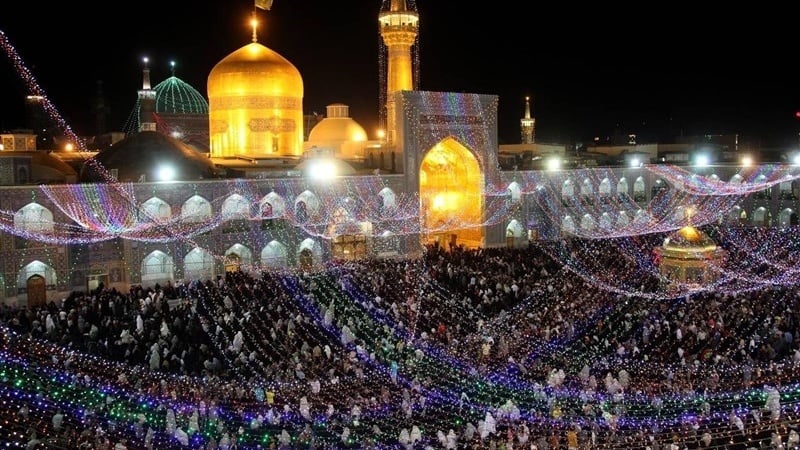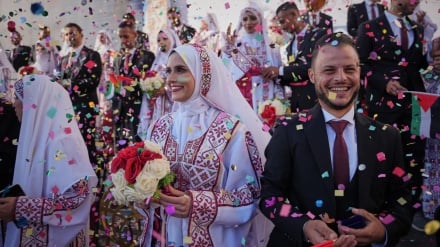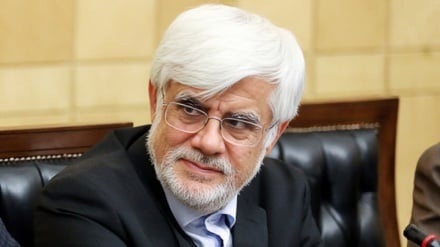From Iraq to Madagascar: A Global Tale of Love for Imam Reza (PBUH)
-

The holy shrine of Imam Reza (PBUH)
Pars Today – A member of Iran's Supreme Council of the Cultural Revolution stated: Imam Reza (PBUH), the eighth Imam of Shia Muslims, receives annually between 5 to 7 million non-Iranian pilgrims, of whom 60 percent are from the Arab world.
Hojatoleslam Seyed Saeed Reza Ameli, a member of Iran's Supreme Council of the Cultural Revolution and head of the Faculty of World Studies at the University of Tehran, stated: "Imam Reza (PBUH) receives annually between 5 to 7 million non-Iranian pilgrims. From Iraq to Bahrain, Kuwait, Lebanon, and Syria, 60 percent of the foreign pilgrims to Imam Reza (PBUH) are Arabic speakers.
Ameli added: "Nearly 20 to 30 percent of these pilgrims are Pakistanis, Indians, and Urdu speakers who come to pay homage to Imam Reza (PBUH), while the remainder come from other parts of the world, particularly Azerbaijani speakers from Azerbaijan and Turkey, as well as European and African pilgrims who come to visit Imam Reza (PBUH)."
The head of the Faculty of World Studies at the University of Tehran emphasized: "What is significant is that Sunni Muslims from Iran and other parts of the world are also consistent pilgrims to Imam Reza (PBUH)."
According to statistics released by the administration of the Astan Quds Razavi, Imam Reza (PBUH) receives approximately 10,000 non-Muslim pilgrims annually, some of whom have no religious affiliation but are drawn by the spiritual appeal of Imam Reza (AS) to visit his holy shrine.
Ameli stressed: "Even during the mourning days marking the martyrdom of Imam Reza (PBUH), there are 150 temporary Mookebs [service centers] around the holy shrine of Imam Reza (PBUH), several of which are managed by non-Iranians—devoted Iraqis loyal to the Ahl al-Bayt (peace be upon them), Urdu speakers, and Azerbaijani speakers. We even have a Mookeb from Madagascar serving the pilgrims of Imam Reza (PBUH)."
This international diversity among pilgrims to Imam Reza (PBUH) is similarly observed in Karbala among the pilgrims of Imam Hussain (PBUH), the third Imam of the Shia Muslims, and this cultural dimension deserves attention, as it unites people from all over the world under one banner.


